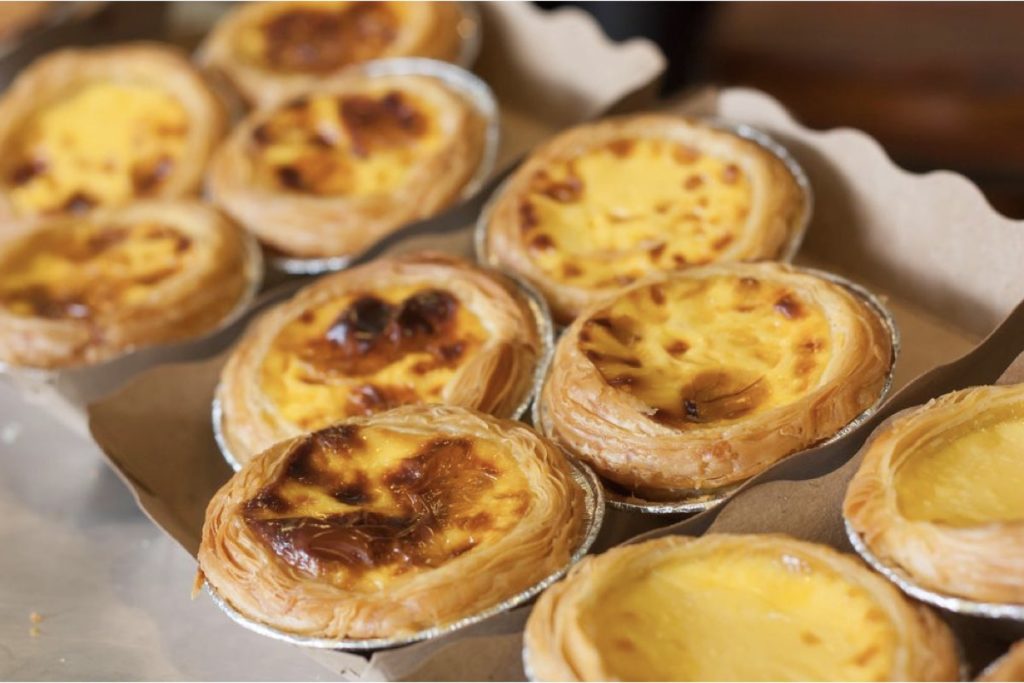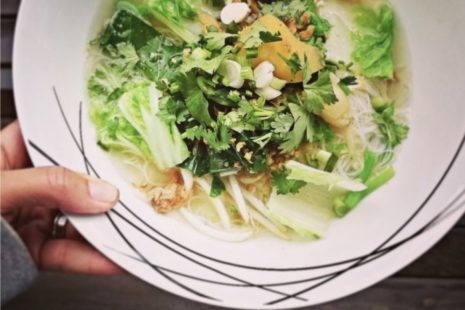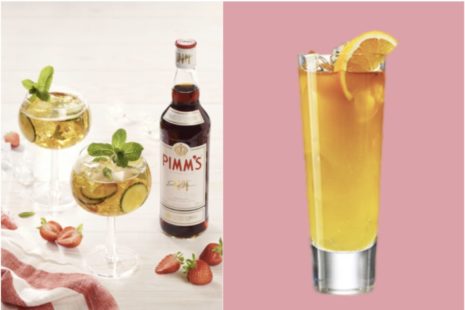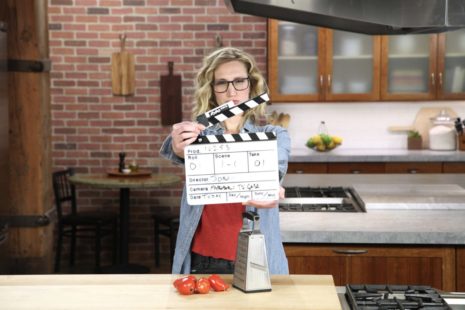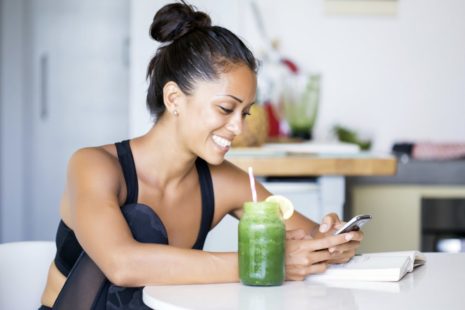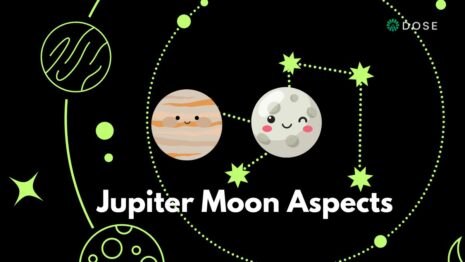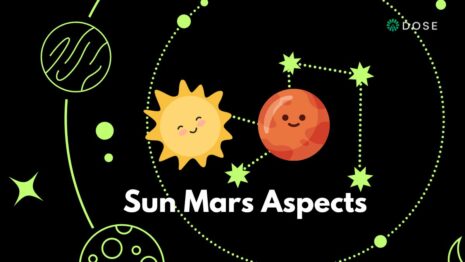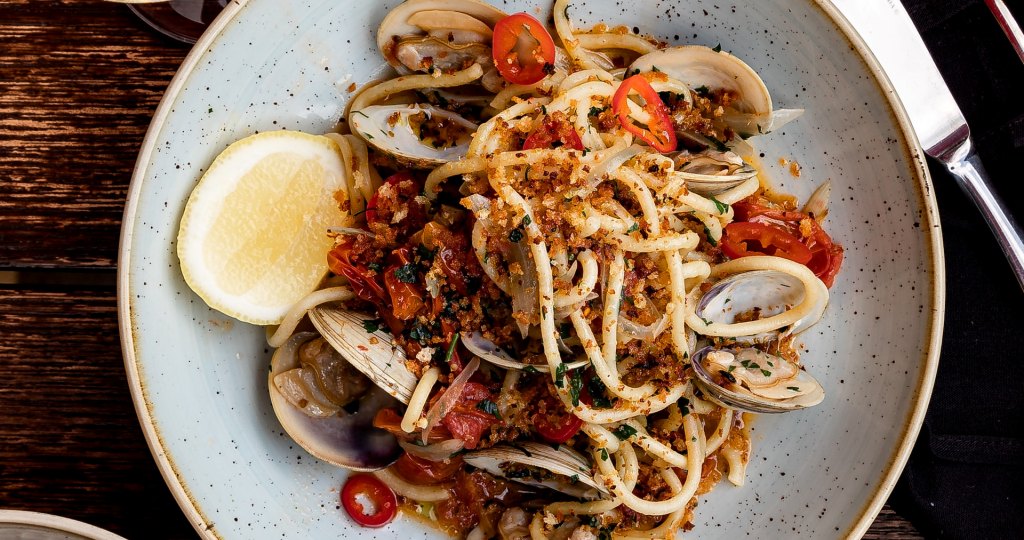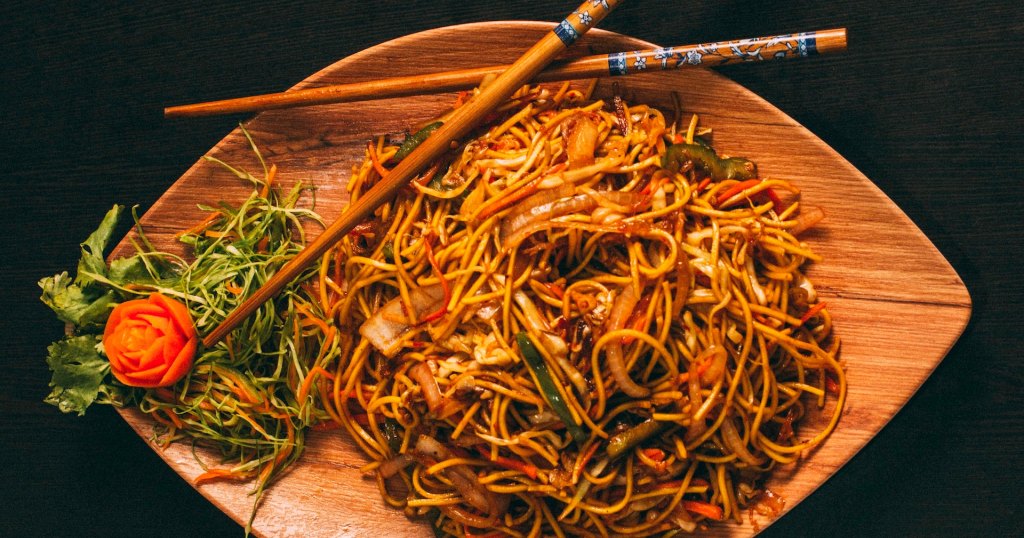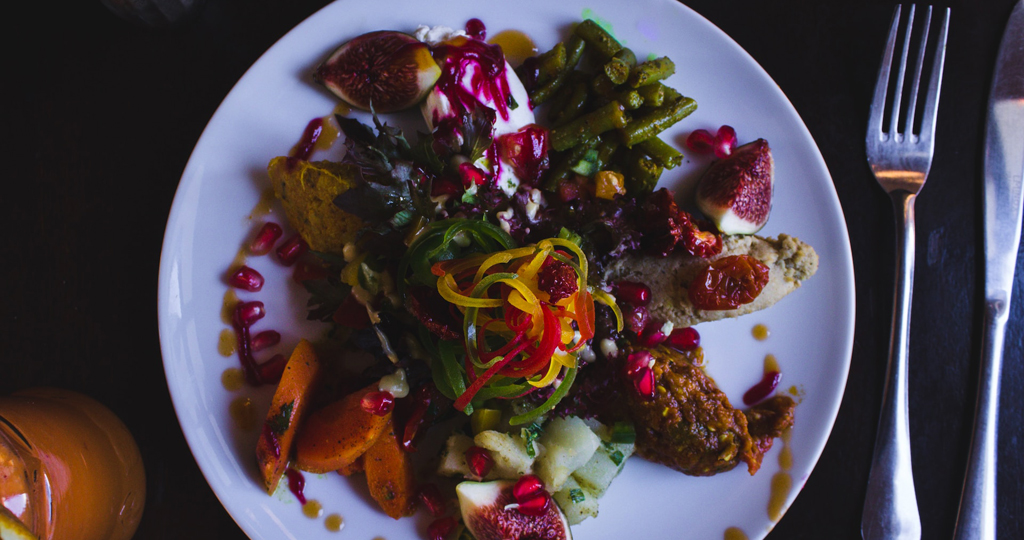Intuitive eating has been around in its defined term since 1995, but its basic premise stems from far earlier than that. It is rooted in a move away from emotional eating, operating under the premise that rather than eating due to happiness, sadness, or something else, you simply eat what the body needs in that particular moment. Less thought and emotion attached to food, more focus on actual, physical hunger and fuelling the body with what it requires. If it’s any kind of diet, it’s the anti-diet, driven on the belief that the diet industry in all its guises is a rabbit-hole and longterm, the only way to achieved normal or balanced eating is through redressing the causes of why we reach for certain foods at certain times. You won’t stuff your face with ‘forbidden’ ice-cream when you’re feeling sad, if you have a bit of ice-cream whenever you fancy it.
‘Intuitive Eating’, the 1995 book that coined the term by Evelyn Tribole and Elyse Resch, sets out key principles, including the idea that food is not ‘good’ or ‘bad’, common terms in the diet industry. Rather, food is fuel, and when you are full, you don’t need more of it. It also advocates respecting your body, making food satisfying – both in its content and surroundings – and looking at exercise as something to enjoy and challenge yourself with, rather than a torturous means to an end. It’s about as body positive – and theoretically, delicious – as eating principles come. DOSE writer Charlotte puts the ‘anti diet’ to the test…
As someone who has tried every diet going (yes, really, ask me anything), eating intuitively has always seemed fascinating to me. The premise involves eating when you’re hungry and stopping when you’re full, eating what you want, not eating for emotional reasons, and forgetting all the diet jargon you’ve ever subscribed to.
As far as I’m concerned, being told you can eat whatever you want, so long as you’re mindful, sounds like a dream come true. Experts say that over time, it doesn’t cause weight gain, but I can’t see how that’s possible when, left to my own intuitive devices, I imagine I’d be eating cake for breakfast, lunch and dinner. I give it a go for three days.
Day 1
Contrary to my previous statement, I wake up and have a totally normal breakfast for me, a KIND bar. I know, a bit rubbish, but I’m late. This is totally intuitive because I literally have no time to think about anything else.
For lunch, my husband has prepared a smorgasbord-style spread of salad, smoked salmon, egg and onion, bread, cheese. Normally I’d eat tons and tons of salad and smoked salmon, to avoid what I really want: cheese and bread. Today, I let myself have the latter, and it’s so satiating, I stop when I’m full, and I actually think I’ve consumed less calories than I would have if I’d wolfed down every non-carb in sight. Result??
Spoke (and got smug) too soon. We’re having a lazy night in and I’m suddenly starving. I reach for the snacks and don’t bother to prepare anything properly. “Intuitively” (read: greedily), I grab Kettle Chips, Halo Top ice cream, cashew nuts, and chocolate finger biscuits. Not healthy and not satisfying, mainly because I eat standing up and barely pause for breath. The lesson here is that eating intuitively has to involve ensuring that one’s food environment is calm and fulfilling, not frenzied. I’m sure I would have eaten less and felt happier at the end had that been the case.
Day 2
We’re on holiday now in Portugal and the only viable breakfast choice is a pastry basket. Carbs are my favourite food group and I thought I would love the opportunity to not be able to opt for a healthy choice. But actually, I find I miss protein and fats in the morning, and take no pleasure from stuffing my face with pastries. This is am interesting observation for me, and worth remembering when I resent my food choices.
That said, later in the day we’re at a food market. Pasteis de Nata all the way, and no regrets.
Dinner involves wine, amazing fresh fish, veggies, potatoes, and sushi. Loved everything about this dinner. I let myself eat potatoes, which I normally wouldn’t, and was surprised that I only had a few bites and stopped. One lesson seems to be that I never normally put my willpower to the test, preferring to abstain from most “bad” things entirely (unless I’m letting myself indulge, but that’s another post), but actually I’m capable of stopping after a small amount of something I really want.
Day 3
A different breakfast spread today. The hotel brings over eggs, cheese, breads and yogurt, and I just nibble at the latter with fruit. I’m weirdly not hungry (weird for me, anyway) and actually take the time to acknowledge that, rather than eat purely because it’s breakfast time.
Come lunch time, we eat Portuguese tapas in a teeny town. Olives, cheese, some fried cod things, cous cous. It’s delicious, but pretty heavy. I don’t feel guilty that there’s not enough greens, and while the lack of food guilt is great, it makes me think that eating like this has a downside. Turns out by eating intuitively, I eat far fewer vegetables.
So, I cheat slightly at dinner and order a salad that I don’t desperately want, but eat anyway – i.e., the opposite of what I am aiming to do. Oops. I’ll do a bonus day tomorrow to make up for it.
Day 4
Back in London, breakfast is a Total Greek yogurt at home, with some grape nuts, berries and agave. This is typical of my at-home breakfasts. I’ve found I don’t really over-think my breakfasts in general, gravitating towards healthy, filling foods.
Lunch is a piece of ginger cake and a smoothie at Detox Kitchen. OK, some might not call it lunch, but actually, it’s exactly what I want. Plus, it may be less calories than the salads and protein I generally go for, although I’m sure it’s not as healthy. Two lessons: apparently I really do only eat vegetables when I remind myself to do so, and also, treat yo’self.
Dinner is at a new restaurant in Soho, Inko Nito. We share everything: edamame, broccoli, salmon, an amaaaazing cauliflower dish, sushi. I eat what I want, stop when I’m full. I truly wonder why I’ve thought this whole diet/eating thing was so complicated for the past 15 years.
Conclusion
I’ve learnt more than I thought I would in this experiment. I eat more carbs intuitively than I generally let myself when monitoring food. It’s probably what my body craves, as I tend to deprive myself of them. I didn’t gain weight over these three days, but I know I would if I ate carbs constantly and recklessly. I also learnt that eating on the go is a real downfall for me, and I’m better off sitting down properly, even if it’s a small meal. Plus, while my diet is vegetable-heavy, this isn’t necessarily by choice, and more obligation.
To be honest, I can’t eat like this forever – I actually like the degree of control that comes with planning meals. But I’ve learnt that giving in to what your body wants at certain times is definitely a good thing. Maybe I’ll be a semi-intuitive eater…
